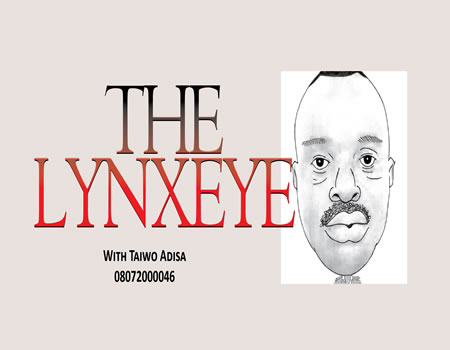When some 60 lawmakers in the House of Representatives signed a bill seeking to revert the nation to the parliamentary system of government about a month ago, I was one of the skeptics. The initial thought was that our people have come with sloganeering once again. That thinking was borne out of our experience as a nation, where we have seen several justifications of the saying: “The hood does not make the monk.”
For instance, we have seen some acknowledged proponents of federalism become governors and then turned local governments to footstools, even as they would claim that only two tiers of government should be allowed in a federalism. We have seen some well-intended sections of the 1999 Constitution turned upside down, as the operators make even the courts helpless in the process. The 1999 Constitution, having guaranteed the existence of the local governments, provided that they run a joint account with the states. The intention is to ensure that the states share at least ten per cent of their internally generated revenue to the local governments. But the governors and the Houses of Assembly, through that window, seized the funds belonging to the councils and killed grassroots governance in that process.
The constitution did not make governors signatories to the accounts of the states, but the biggest corruption cases we have seen the EFCC handle at the sub-national levels are against past governors. So, one can argue that whatever the law says or does not say, is secondary in our clime. The will of the political system operators could determine a lot of things.
One can also argue that the leadership recruitment process holds some superior importance to the system of government adopted at the end of the day and that the institutionalisation of democratic tenets is also a vital ingredient towards the building of a democratic culture. The fact that our politicians are good at bringing water from the rock should equally tell anyone that respite might not just be in the adopted system. What about the political party structure? In the first Republic, when the parliamentary system held sway at the federal level and the regions, the parties queued behind regional leaders who were cult heroes and strong personalities. That void is huge these days, when parties only exist in name and on paper. Under the present system, the parties belong to the governors or the moneybags, who determine who gets what, where and how.
Having read the views of Afenifere leader, Pa Ayo Adebanjo on the parliamentary system, however, I decided to take deeper looks at the argument. And staking my experience at the national and sub-national levels of government in this republic, I want to agree that the parliamentary system of government is worth trying.
Pa Adebanjo had told Arise TV recently: “Those of us who’ve had experience with the parliamentary system in this country see that it’s the only way out. The presidential system is corrupt, especially in Nigeria; it makes the president a dictator.
“To question the supremacy of the president is only in operation before the election; the moment he’s elected, he becomes a dictator where no one can oppose him. His word is the law.
“Particularly in Nigeria, our constitution makes the president the most powerful in the world. The system is too expensive and corrupt. The earlier we revert, the better.”
He added that under the parliamentary system, the prime minister is first among equals and that if he misbehaves, the parliament will question him. So, rather than having one candidate run around the 36 states and the FCT, spending billions, to police over 176,606 polling units on election day, a prime minister would only need to emerge from his constituency.
One of the ills the parliamentary system could help us cure is the tendency towards dictatorship in the democratic space. In the presidential system of government, the president is the chief executive of the federation, while the governors are chief executives of the states. The “executiveness” in their titles is not imagined but real. While the president tries to control all levers of power at the centre and pocket the legislature, the governors institute totalitarian governance in the states.
Like the president, the governors are presidents of their State Executive Councils(SEC), where their words are final. In many states, the SEC meetings are mere jamborees. A former commissioner in one of the states once told me that SEC meetings are only to receive briefings from the governor. He speaks first and he speaks last. Nothing like debates. A friend also once shared his experience where some experts were invited to brief a meeting of the state’s SEC. He said as soon as the governor spoke, the commissioner in charge of the sector quickly toed his line. But that view was challenged by one of the experts who presented data to back up his claim. The governor was confused and asked his commissioner to enlighten the meeting. Not wanting to portray the governor as ignorant, the commissioner simply said, Your Excellency is right, and my learned colleague is also right!
If you are new in government, your colleagues would tell you that SEC meetings are not places you go to pontificate ideas. It’s a club of yes men. If you defy that advice, your corner would soon be branded “enemy of government” and approvals to your ministry or department become far between.
So, in place of democracy, we are truly running an autocratic system, where people cannot be themselves but slaves to sycophancy.
Those of us who were not around to witness governance at the pre-independence period and the First Republic have been severally told by the older politicians that the policies that made a place like the Western Region thick under Chief Obafemi Awolowo were products of rigorous debates and lots of intellectual exercises. Two good heads, are better than one, so goes the saying, in the presidential system of Nigeria, only one head knows it all.
Besides the dictatorial tendencies, I also reckon that the parliamentary system would help us reduce the cost of elections. In a recent study, I discovered the trajectory of an average legislator in the National Assembly. Elected governors face similar financial huddles as identifiable with the legislators. For instance, a typical governor enters the office financially indebted to political barons, groups and forces. He would have signed agreement to refund such monies upon election. He probably spends the first one year sorting out the debts. The next one year is devoted to stabilising himself financially and then the third year is to raise funds for the re-election. Mind you, re-election campaigns are costlier than the first. In such a situation, he hardly finds time to think about positive ideas that facilitate development. Little wonder, it is hard to come by governors who leave lasting legacies these days.





